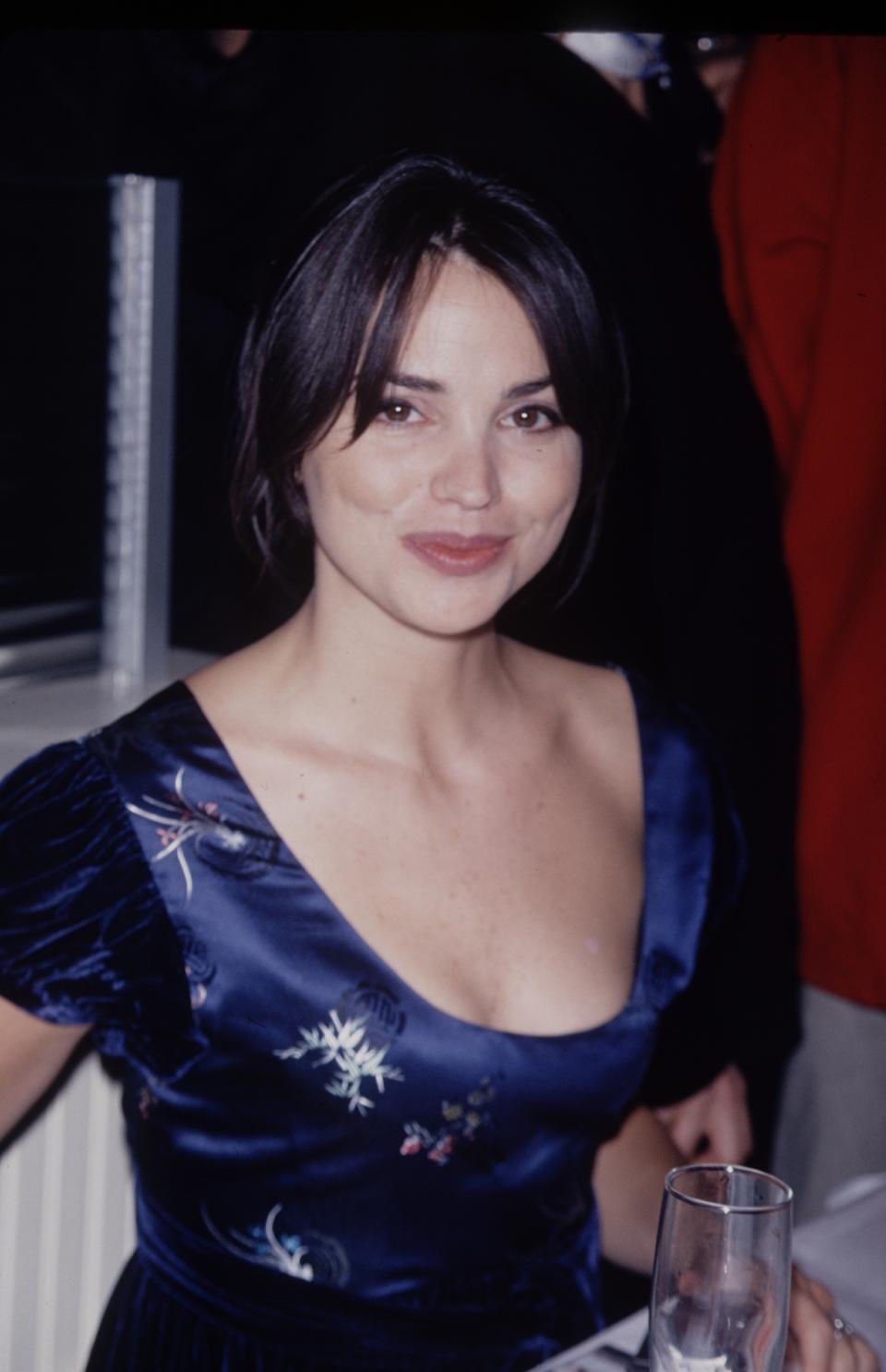Former MTV VJ Karen Duffy on her advice for managing chronic pain

“I never imagined that the pain was going to last this long, that it would be endless, and that I’d have to figure out how to deal with it for the rest of my life,” Karen Duffy writes in the introduction to her book, Backbone: Living with Chronic Pain Without Turning Into One, which was released earlier this year. While her book is about living with illness, it’s not your typical illness memoir, which is fitting, since there is nothing typical about Duffy.
In the 1990s, Duffy (known then as Duff), was an MTV VJ and a model who charmed viewers worldwide; today, while her subject matter is radically different, she is still communicating her characteristic enthusiasm, sense of the absurd, and determination to enjoy life.

Twenty years ago, after the height of her VJ fame, Duffy was diagnosed with sarcoidosis of the central nervous system. She has since developed inflammatory lesions in her brain, nervous system, and lungs, resulting in chronic pain so intense that at times, she says, air on her skin feels unbearable.
Duffy spoke with Yahoo Lifestyle about her experience as a patient and how she manages her illness on the days when the pain is too much to bear: “Reading, writing, quiet time, the stoic philosophers, and being of service,” she writes in her book. “They are the passions of my life.”
Karen Duffy on her motivation for writing this book: My goal was to write a book on the subject of pain that was not painful to read. The interesting thing about pain is that it does reduce language. It’s really difficult to describe. It’s invisible.
On her ideal reader: I wanted to reach people who are maybe rookies with illness. I felt like this is the book I would want to read. But I also wrote this book for my husband and son. A lot of what I go through, they don’t know about.
On what she hopes readers will take away from this book: I want people to know that it is a mistake to do nothing just because we can only do a little. The smallest action will help you get cracking. Just because we may be sidelined by less than perfect health, we can still be wildly useful.
On her relationship to reading and writing: Reading and writing are sources of great satisfaction. I love reading a book a day. I take great joy in the process of writing. When I am homebound I take internet courses and I write. I write longhand. On days when my hands don’t work, I use medical tape, and I tape the pen to my hand.
On how chronic pain has changed her: Being so close to chaos, I am much more thoughtful and composed. I can’t control what is happening in my body. I am OK with that. I am an optimist, but I’m also a catastrophist. I think things are going to be great and then go haywire. How we respond is the most important thing. This is the only life I have. And it is difficult. But I am really happy and really grateful for my life. Yes, I live with some issues and deficits. But I try to magnify the good and to squeeze as much fun out of my life as I can when I am up and even when I am down.
On what helps her when she’s feeling really low: I distract myself with low-level happiness. One is a cup of milky tea in my favorite mug. Walks through the park. I fill my life with a lot of things to look forward to. If I put them in a ledger, like an accountant, I come out winning.
On what she wishes healthy people knew about illness: How to be a good friend to a friend who is sick. We get inhibited because we don’t know what to do, so we may do nothing. I often hear people say, “I’m not good at this.” No one is going to be grading it. Just sending a card is great. Sometimes people ask the sick person, “What can I do to help?” It’s difficult to respond to that. But you know your friend. Be specific. Walk their dog. Small actions are good.
Her advice for people recently diagnosed with a serious illness: Understand that you are not alone. One out of three Americans lives with a chronic illness. Try to stay as active as you can mentally and physically. The only thing we can control is our response. Figure out the way you want to be sick. Acceptance and resilience are as important as chemo and pain medications. I have a serious illness, but I don’t take it seriously. One of the things the stoic philosophers teach us is that the obstacle is the way.
Read more from Yahoo Lifestyle:
• This 13-year-old boy recorded his talk with the principal — now he’s being charged with an eavesdropping felony
• The Columbus Zoo named its newest ‘mischievous’ vervet monkey baby after ‘Vanderpump Rules’
• New Zealand Prime Minister Jacinda Ardern just gave birth and it’s not her first time making feminist history
Follow us on Instagram, Facebook, and Twitter for nonstop inspiration delivered fresh to your feed, every day.

